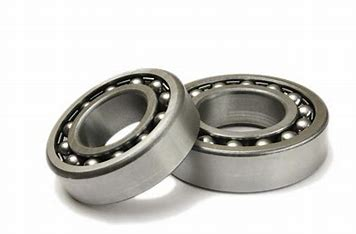What are wheel bearings? And why are they important?

What are wheel bearings?
From the wheeled carts you use at supermarkets to huge conveyor systems in factories, bearings make movement possible. Bearings are parts of a machine. What they do is constrain relative motion and reduce friction between moving parts.
In cars, bearings are usually used in the engine, steering, drive shaft, and wheels among others. In all of these uses, the main function of a bearing is to reduce friction by preventing metal-to-metal contact between parts that move relative to each other. Other than reducing friction, bearings also keep heat generation to a minimum and prevent the speedy wear and tear of moving components.
Wheel bearings in cars usually come in the form of little balls trapped between two metal rings. When the wheel rotates, the bearing does so. The rolling balls of the bearing make it possible for the wheel hub to rotate freely.
The wheel bearing is found inside the hub assembly, connected to the hub carrier through the outer ring also called “racer.”
What happens when wheel bearings go bad?
Although bearings are small components of a wheel, having bad bearings can pose significant risks to you and your car. For one, bad wheel bearings make the wheel’s motion less smooth. It can also cause roller damage to your wheel system. Loose clamping is another possibility, together with your tires getting damaged.
What are signs your wheel bearings are bad?
You don’t want to be driving around with bad wheel bearings knowing the risks they pose, so how do you alert yourself when your wheel bearings are no longer in a good condition? Watch out for these symptoms.
Loud and strange noises
Cars make noise, but as a driver, you must be familiar with noise that signals abnormal conditions. For bearings, a telltale sign of damage is squeaking and clunking sounds especially when you turn, accelerate, or shift gears.
Grinding
When your wheels grind when you make a turn or shift gears, that’s a sign of bad bearings. And also, severe damage to your wheel system.
Vibrations
When your wheels vibrate when you turn or accelerate, there could be many culprits. And although not many drivers think that it could be due to bad bearings, you should never cross it off the list of possible suspects.
Pulling to one side
When your car pulls to one side when you apply brakes, it can be a symptom of failing bearings.
How do you maintain the health of wheel bearings?
Immediately replace damaged wheel bearings, but before you come to the point of having to replace them, there are a few things you can do to keep them for longer. Make sure that the bearing is intact through proper installation. Dirt or water can seep in if the racer gets damage upon installation, affecting lubrication.
Be careful when driving on rough roads to reduce impact. Use the right rim for your car. Heavier rims increase the load that acts upon the bearings.
These are just some of the maintenance tips you can follow to protect wheel bearings. When you suspect that your bearings are bad, go to your trusted mechanic immediately.